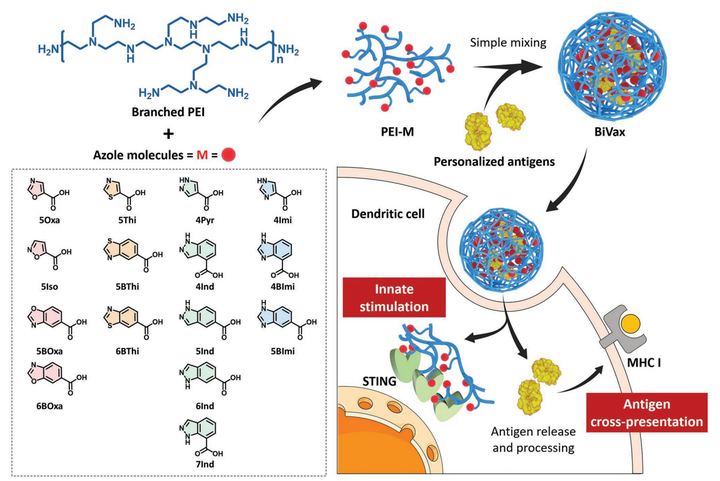A Minimalist Binary Vaccine Carrier for Personalized Postoperative Cancer Vaccine Therapy
 Image credit: Wiley
Image credit: WileyAbstract
In recent years, significant evolutions have been made in applying nanotech-nologies for prophylactic and therapeutic cancer vaccine design. However, the clinical translation of nanovaccines is still limited owing to their com-plicated compositions and difficulties in the spatiotemporal coordination of antigen-presenting cell activation and antigen cross-presentation. Herein, a minimalist binary nanovaccine (BiVax) is designed that integrates innate stimulating activity into the carrier to elicit robust antitumor immunity. The authors started by making a series of azole molecules end-capped polyeth-ylenimine (PEI-M), and were surprised to find that over 60% of the PEI-M polymers have innate stimulating activity via activation of the stimulator of interferon genes pathway. PEI-4BImi, a PEI-M obtained from a series of polymers, elicits robust antitumor immune responses when used as a subcutaneously injected nanovaccine by simply mixing with ovalbumin anti-gens, and this BiVax system performs much better than the traditional ternary vaccine system, as well as, commercialized aluminum-containing adjuvants. This system also enables the fast preparation of personalized BiVax by com-positing PEI-4BImi with autologous tumor cell membrane protein antigens, and a 60% postoperative cure rate is observed when combined with immune checkpoint inhibitors.